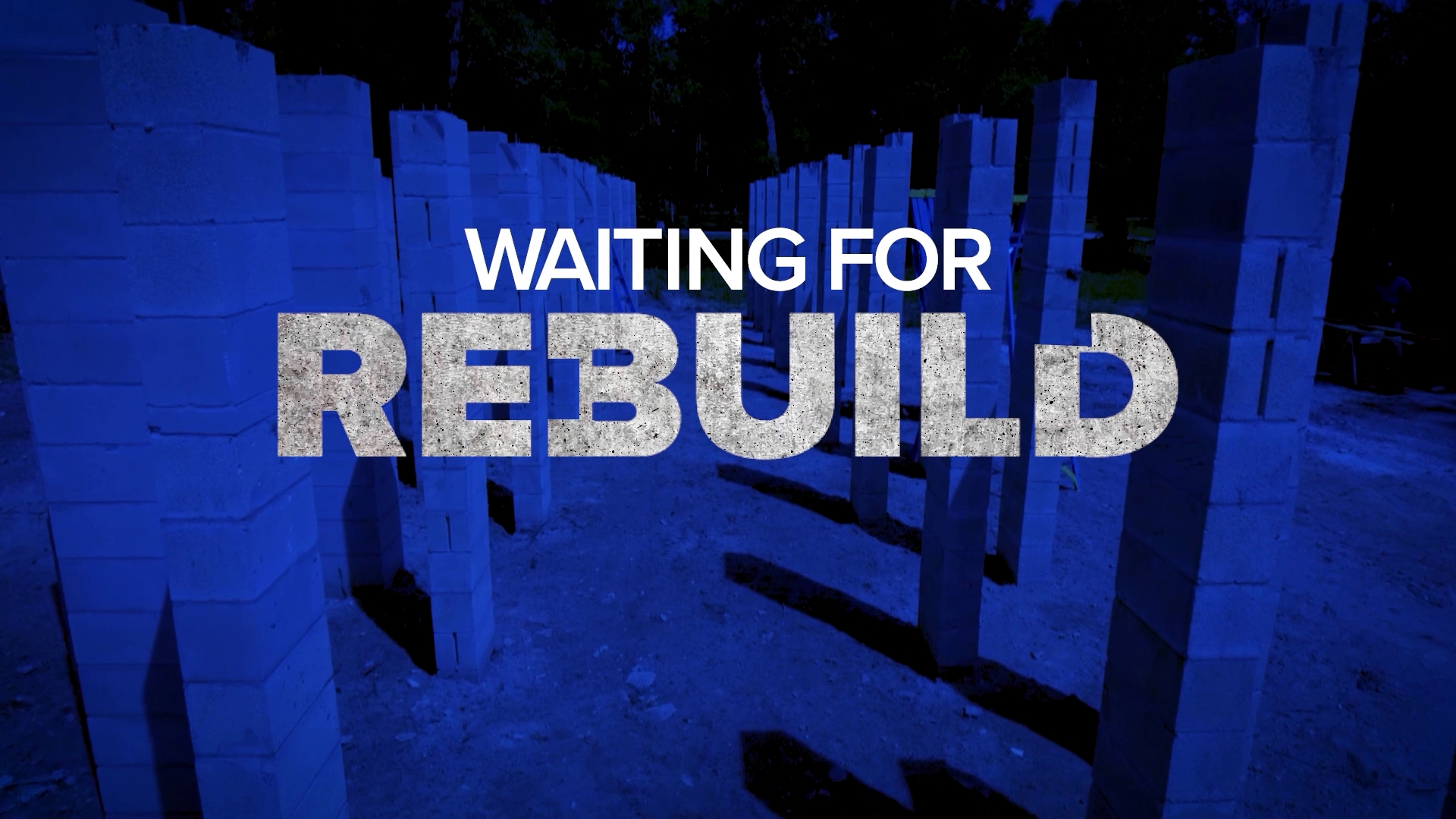TAMPA, Fla. — When we first met Mary Simpson earlier this year, she was still living in a hotel, hoping to be able to spend holidays in her new home. This year, she will be able to celebrate Christmas with her family and her animals now that their mobile home has been replaced.
"I said with or without beds I'm coming home," Simpson told 10 Investigates.
While she knows life can be a slow journey, she never thought this season would take this long.
“We just waited and waited,” Simpson said.
The Simpsons were one of 4,000 families who signed up for Florida’s Hurricane Irma Repair and Replacement Program. The state allocated $480 million of federal money it received to repair or replace homes damaged in the 2017 storm.
“You just do what they tell you and you wait," Simpson said.
Mary says the following year, they were approved for a brand-new home. But there were continuous delays. Month after month, year after year. No workers. No home. Until this spring. Six years after starting the process, she’s finally living with her husband and animals all under one roof again.
"It’s emotional to say I got a home, my own bathroom my own kitchen. I'm not in a hotel," Simpson said.

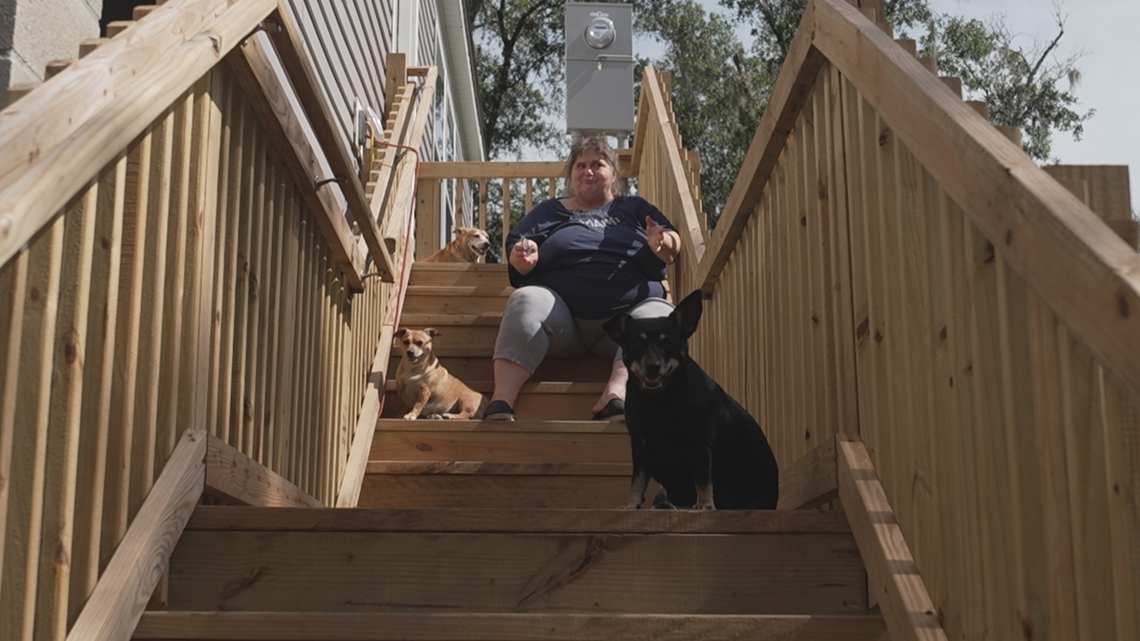
In May, the Secretary of the Florida Department of Commerce Alex Kelly told 10 Investigates the hundreds of families still waiting should see the finish line by the end of July.
“That's when all of the homes will be completed," Kelly said.
As the state missed the mark, 10 Investigates hit the road, visiting families who were still waiting like Katoya Wright in Miami. More than 200 families are still waiting across the state. The mom of four has been living in a hotel room.
“This is home for us,” Wright said as she showed us the areas for her son and daughter.
Wright says she initially signed up in 2018. Then, three years later, she got her official paperwork from Rebuild Florida.
“They told us 6 months to a year,” Wright said. “I don't know anything about reconstruction or rebuilding. I was thinking at most a year and a half.”
Waiting six years for her home, time feels like it's at a standstill in the hotel.
“It's really hard you know because they are kids. You don't want them running, talking too loud,” Wright said. "I get so emotional like someone was saying, the holidays, the birthdays, it's all spent here. Like you feel you have nowhere to really go."

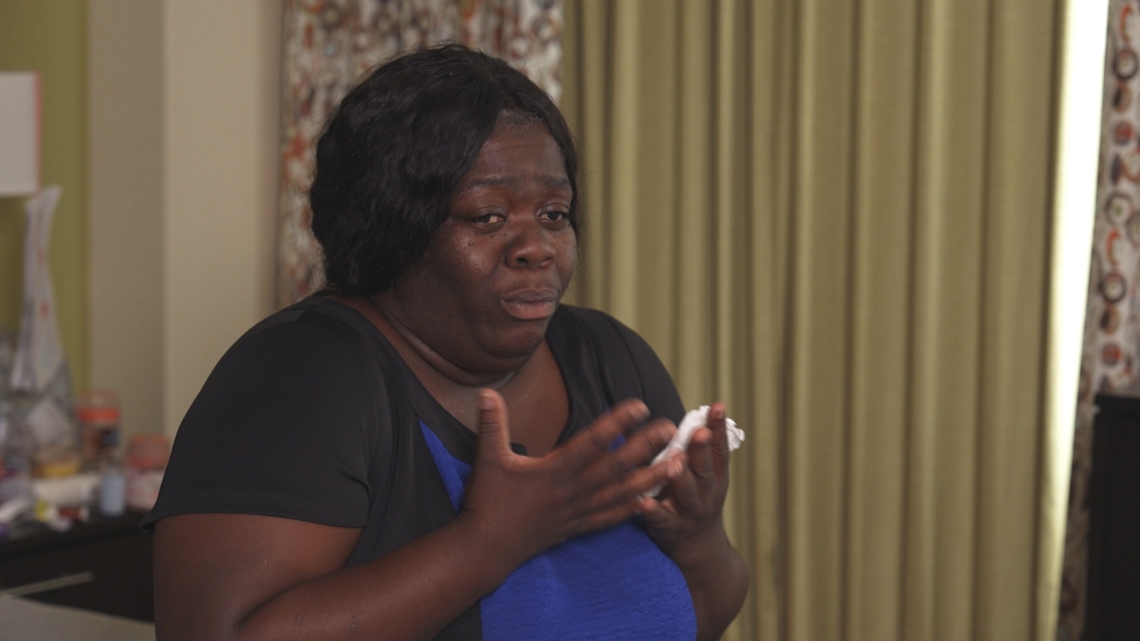
10 Investigates spent nearly a year going over the program's contracts from Wright’s to Jane Moore's in Tampa to Belinda Hughes in Clearwater. We uncovered questionable contractor spending with the scope of work doubling, tripling and even quadrupling. At one point, the former Secretary of Economic Opportunity even reached out to the U.S. Department of Housing and Urban Development saying there wasn't enough money to complete all the homes.
"This is taxpayers’ money," Sean Moulton from Policy on Government Oversight said.
10 Investigates sent our findings to POGO, a non-partisan watchdog group.
“I'm shocked that a project of this size, in terms of dollars in terms of households that are being addressed, has a single public audit of seven properties,” Moulton added.
He says Rebuild needs to do a better job of watching the bottom line.
“It is simply insufficient when it comes to real robust oversight, which is what's needed here,” Moulton said.
Then, there are the mounting hotel bills. Mary Simpson stayed in a hotel for almost a year. Jane Moore says she and her partner were in a hotel for 433 days. For Katoya Wright, it has been 3 years. Her room averages $120 a night. You multiply that by just 30 days, and the state is paying $3,600 a month for the Wrights to stay there. The state refused to allow them to just rent a home. A quick look at what's available in their neighborhood is far below the cost of a hotel stay.
The Wrights met us in their neighborhood to see the construction. They're now told their new home should be completed by October. We also had State Senator Shevrin Jones meet us there. Wright’s home is in his district.
“The state, we owe her an apology. I also think we owe it to these individuals to follow through on what we said we were going to do. And the fact that she’s been in this predicament for 7 years, it falls onto the state,” Jones said.

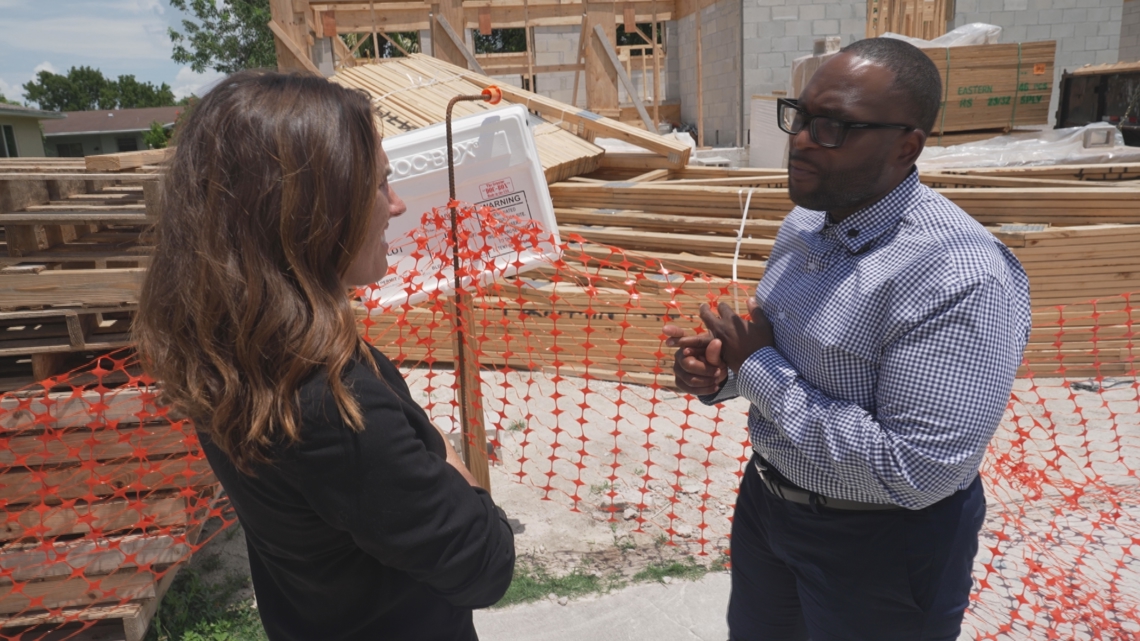
When 10 Investigates reached out to Senator Jones, we sent him the same email we sent to every single senator in Florida asking about the delays in the multi-million-dollar state-run program. Those that got back to us all said they were unaware.
“How is that possible this went on for so long and no lawmaker is aware of this,” Jennifer Titus asked.
“If we don't hear from the constituent, we don't know,” Jones explained. “Now that I know, we’re going to do something about it."
Two days after this interview, Senator Jones sent this letter to Secretary Kelly with an urgent request for an audit of the Rebuild Florida contract with IEM. That's the third-party contractor that won a $252 million deal with the state to oversee all of the Rebuild projects. When we reached out to IEM back in May, they refused to do an on-camera interview and answer questions. Instead, a PR agency sent us a video of CEO Bryan Koon.

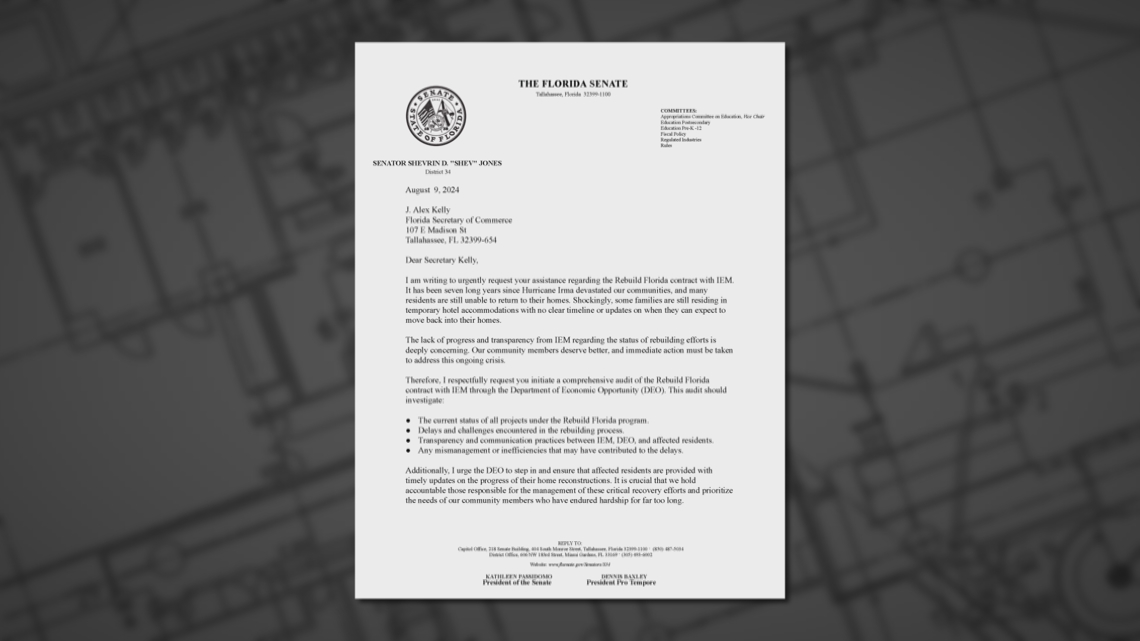
“We will do whatever it takes to finish these homes,” Koon said.
10 Investigates learned Koon was the former Director of the Florida Division of Emergency Management when Hurricane Irma hit. Now, he's CEO of the company that even Secretary Kelly says is falling short.
During an interview with 10 Investigates, Jennifer Titus showed FloridaCommerce Secretary Alex Kelly and Office of Long-Term Resiliency Director Justin Domer pictures from a project in Tampa.
"There is spackle on the walls, there's cracked windows, but they get a letter from Rebuild saying that this project is complete, even though they've complained and complained that this project is not complete. Hearing stuff like that, would you say a project like that is complete?" Titus asked.
“If our contractor signed off on something as complete. And if it's not actually consistent with the work. In other words, if they're if they're essentially lying, and they're saying something that's complete, but it's not complete, that could be an actual case of fraud," Kelly said.
He told us that the state has withheld money from IEM for not finishing deadlines on time. He questioned their organization of contracts after we showed him those mounting hotel bills. He also says he was unaware of the homeowners' complaints — saying although the complaint form is on the state's website, the messages were all filed off to IEM to handle.
"They are pretty consistently telling us that they've left messages for IEM, not gotten phone calls back for some time,” Kelly said.
After the interview, he told us the state would be launching a fraud investigation over the inaccuracies. But later, the state told us the contractor acknowledged and resolved the issue. IEM's contract ended with the state on July 25. IEM says about 95 percent of the projects have been completed.
Now with a new disaster recovery agency in charge, Wright once again has a new case worker.
"This has been life-changing," Wright said.
“Did you ever think 7 years later this is where you would be,” Titus asked.
"Oh god no. I never imagined this is where I would be,” Wright replied.

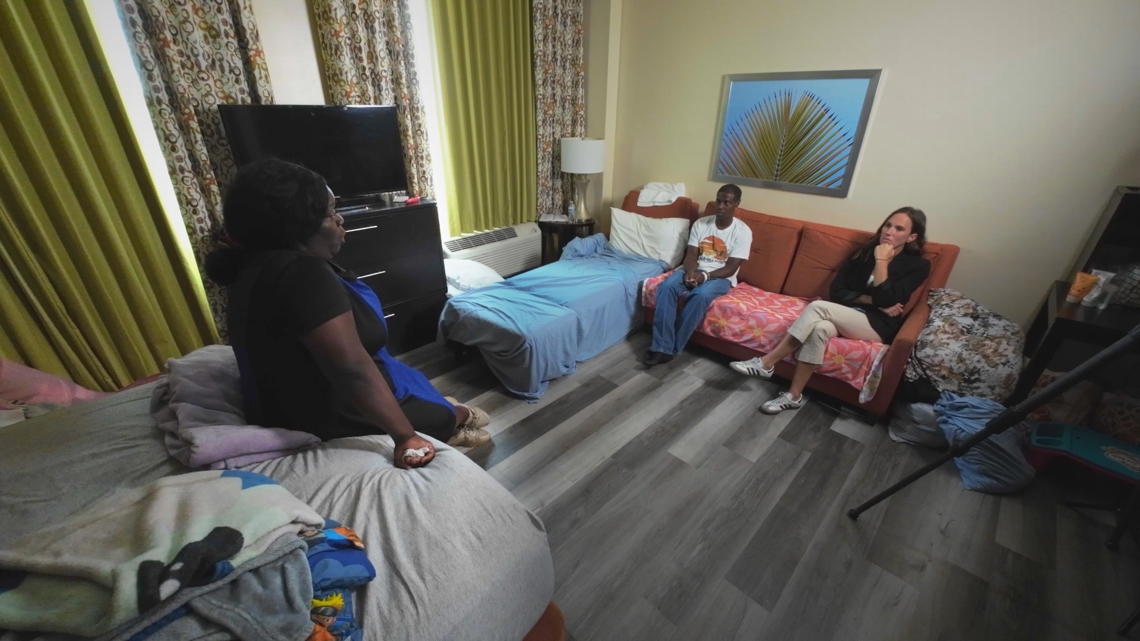
Mary Simpson finally has the keys, but her home with 20 steps up to the front door has been a longer journey than she expected with a few more surprises along the way. Her husband Tommy pointed out the issues in the new home, showing 10 Investigates things like a shaky handrail and loose kitchen faucet.
“There’s a window here. The door’s here. And I have no idea why they would want to put a power box right there,” Tommy Simpson said as he pointed to the metal box just steps from the front door.
"The meaning of the program is good, but finding out that it was not planned out properly is my only issue," Mary Simpson said.

